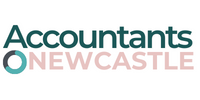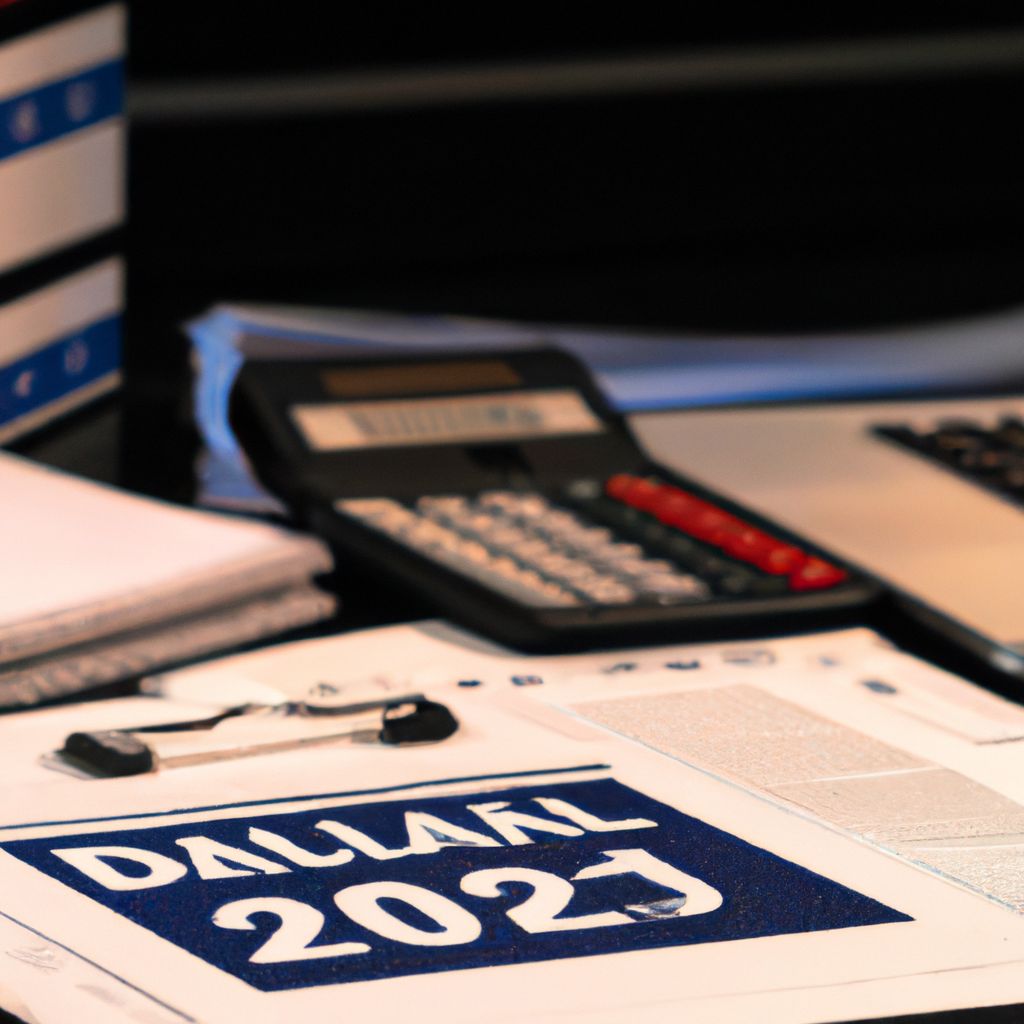Self-assessment tax returns: the key to managing your tax obligations. Discover the ins and outs of these crucial documents, from understanding what they entail to recognizing their significance. Dig into the details of self-assessment tax returns, gaining insights into their purpose and why timely filing matters. Don’t miss out on this opportunity to navigate the world of tax compliance effortlessly and make informed financial decisions.
Explanation of self-assessment tax returns
Self-assessment tax returns are a must in the UK tax system. Taxpayers must report their income and work out the tax they owe. They do this themselves, not HM Revenue & Customs (HMRC). Self-assessment tax returns give HMRC a full picture of an individual’s money for the tax year.
Self-assessment is key to correct and speedy tax collection. People can declare income from self-employment, rentals, investments, etc. Plus, they can claim deductions and reliefs, reducing their taxable income.
Plus, self-assessment tax returns help HMRC get the tax right – noting any errors between the income reported and the taxes paid. HMRC can look into discrepancies or impose penalties, if needed.
Remember, self-assessment tax returns must be done on time, or there may be financial penalties or interest charges by HMRC. Taxpayers must understand how important it is to file them accurately and on time.
In short, self-assessment tax returns let people declare income and work out their liability within UK tax law. It also lets them claim deductions and reliefs. Meeting the deadlines set by HMRC is essential to avoid penalties and charges. To make it easier, visiting AccountantsNewcastle.uk for professional advice and help on filling out your return can be invaluable.
If you think filing these returns is essential, don’t do it and see how quickly HMRC becomes your best friend!
Importance of filing self-assessment tax returns
Self-assessment tax returns are important for individuals who need to report their income, expenses, and taxes to HM Revenue & Customs. This provides a record of finances and helps the government assess the right tax owed.
Filing these returns is needed by law for self-employed people, freelancers, landlords, and those with income over a certain limit. Not doing so can result in penalties and other legal issues.
The 2023 self-assessment tax return must be submitted by a certain date. Missing this means financial penalties, delays in getting refunds, or even investigations by HM Revenue & Customs.
Keith Graham Chartered Accountants can help with filing these returns. Their expertise and knowledge of regulations can ensure accuracy and maximize benefits.
So, filing self-assessment tax returns is vital to meet legal requirements, avoid penalties, stay on good terms with HM Revenue & Customs, and get potential benefits. Professional help is suggested to optimize one’s financial situation. Get ready – understanding the tax year is a wild financial ride! Dividend tax rates 2024 will play an important role in the overall calculation.
Understanding the tax year and its duration
In the realm of self-assessment tax returns, understanding the tax year and its duration is crucial. Join me as we unravel the intricacies of this period and gain valuable insights.
Discover the purpose behind the tax year and how it influences our financial obligations. Delve into the duration of this fiscal cycle and its impact on taxation. With these key aspects under our belt, we can navigate the world of self-assessment with confidence and clarity. Sole trader need to register to be able to abide by the taxation laws.
Explanation of the tax year
The tax year starts on 6th April and ends on 5th April of the following year. It’s the time for individuals and businesses to report income and pay taxes. Taxpayers must understand the categories – employment, self-employment, investments and other sources. They must calculate and report taxable income correctly to comply with tax laws.
Payment on account is a unique part of the tax year. Two payments must be made towards the upcoming tax year’s liability. Plus, any outstanding balance from the previous year. These are due on 31st January and 31st July.
Taxpayers should know key dates for the self-assessment tax return. For 2023/2024, the deadline is 31st January 2024. Missing it will incur penalties and interest charges from HM Revenue & Customs.
Be aware of the tax year’s duration. Start your self-assessment before the final episode airs!
Duration of the tax year
The tax year is the period when people report and pay their taxes. In the UK, it runs from 6th April to 5th April of the next year. HM Revenue & Customs (HMRC) sets this time frame for taxpayers to follow.
People must collect their financial records and complete their tax returns in this time. This includes income, expenses and deductions or credits. People need enough time to put this together and give it to HMRC.
It’s important for taxpayers to know the deadlines of the tax year. For example, the 2023 self-assessment tax return has key dates for payments and submitting the final tax return. Not following these may mean penalties or interest from HMRC.
Don’t forget the 2023 self-assessment tax return key dates. Make sure you’re ready for the time-travelling accountant role with zero procrastination skills!
Key dates for submitting the 2023 self-assessment tax return
As we dive into the world of self-assessment tax returns, it’s crucial to stay on top of the key dates that revolve around submitting your 2023 return. From the start of the tax year to the looming deadlines, this section will be your guide. We’ll explore the importance of meeting these deadlines and the consequences that may arise if they’re missed. So, grab your calendar, as we navigate the key dates to ensure a smooth tax return process.
Start of the tax year
The tax year starts April 6th and ends April 5th of the following year. It’s important to be aware of this date and to keep accurate records of earnings and deductible expenses. This is the foundation for the self-assessment tax return.
Other key dates to note include payment and submission deadlines. Missing these can lead to penalties and interest charges. Plus, not starting on time can lead to unnecessary stress and errors on the tax return.
For help, reach out to Keith Graham Chartered Accountants. They can advise on record-keeping, deductible expenses and accurate reporting. This minimizes potential risks and issues.
In short – don’t procrastinate! Stay organized and start the tax year off properly.
Important deadlines for submitting the 2023 self-assessment tax return
Taxpayers must not forget the start of the tax year. This marks the start of their tax obligations. The reference data does not have the exact date, but this info is with HM Revenue & Customs (HMRC). It’s essential for people to remember this date. They can then prepare their financial records and documents.
Important payments on account have deadlines. These payments are due twice in the tax year. Taxpayers must make these payments on time or they may get penalties or interest charges. Dates for these payments are not in the reference data, but HMRC will be able to provide them.
Lastly, individuals must ensure they meet the deadline for submitting their tax return. The reference data has the deadline set by HMRC for 2023 self-assessment tax return. Failing to meet this deadline may result in late filing penalties and potential complications with one’s tax affairs. It’s important to keep in mind the importance of meeting the deadlines for submitting 2023 self-assessment tax return.
First payment on account due
The first payment on account is a must for submitting a self-assessment tax return. It is the initial installment taxpayers need to make for the current tax year. Here are 6 points about it:
- It is based on the previous year’s tax liability.
- It must be paid twice a year – first by January 31st.
- It helps spread out the tax liability over two payments.
- It includes income tax & Class 4 NI contributions.
- Late payment or non-payment may incur penalties & interest.
- If actual tax liability is lower than estimated, you may get a refund.
It is important to note these six points. However, seek a professional’s help for tailored advice. Don’t miss the deadline or else penalties may apply. Streamline the process with assistance from Keith Graham Chartered Accountants. Pay your second payment on account – or the taxman might come knocking!
Second payment on account due
The second payment on account is a must-do for the self-assessment tax return process. It’s the second installment for the current tax year’s estimated tax liability. It’s due after the first payment on account.
- It must be paid by a specific date, six months after the first payment on account.
- It’s calculated based on estimated tax liability and payments made throughout the year.
- This payment allows individuals to spread out tax payments during the tax year.
- Accurate calculation is key to avoid interest and penalties for underpayment.
- Missing the payment may incur additional charges and affect financial situation.
- If income is lower than expected or other circumstances affect tax liability, contact HMRC for adjustment to payment amount.
It’s important to meet the deadline to avoid penalties and interest. Get help from Keith Graham Chartered Accountants to ensure all deadlines are met. They can help avoid costly mistakes and manage tax responsibilities.
Deadline for submitting the tax return
Taxpayers must comply with deadlines for their tax returns. Not meeting them could bring consequences. The 2023 tax year starts on a certain date and there are deadlines to remember during the year. An initial payment is due at one point, followed by a second payment at another. But the most crucial deadline is the submission of the tax return itself. Missing this could lead to penalties and even legal problems.
Meeting the tax return deadline is crucial for businesses and individuals. It ensures that HM Revenue & Customs (HMRC) get accurate info about finances during that tax year. They can use this to calculate tax due or refunds.
Not meeting the deadline can bring serious trouble. Late filing could mean fines from HMRC and interest on any unpaid tax until the return is in.
To avoid penalties and meet legal requirements, it’s best to get help from professionals like Keith Graham Chartered Accountants. They can guide you through and help meet deadlines for self-assessment tax returns.
To sum up: meeting the tax return deadline is essential. Not doing so could mean financial penalties and legal problems. Professional help from Keith Graham Chartered Accountants would help meet deadlines punctually and avoid complications.
Consequences of missing deadlines
Missing deadlines for self-assessment tax returns can be costly! HM Revenue & Customs (HMRC) will penalise you with fixed amounts or daily charges. It’s important to stay on top of these deadlines to avoid financial burdens.
Late submission penalties? You may face these if you don’t submit your return by the deadline. The amount depends on how late it is and if you have a reasonable excuse.
Daily penalties too? Yep, HMRC can add these for any further delays. These can quickly accumulate and become a lot.
Interest charges? Miss the deadline for paying any tax owed and HMRC will start charging interest on outstanding amounts.
Loss of entitlements? Failing to meet the deadlines can mean missing out on certain tax reliefs or deductions.
Damage to reputation? Consistent delays in filing tax returns can damage your rep with HMRC and other stakeholders. This could lead to increased scrutiny and potential audits in future.
Professional assistance is key! Engage with a qualified chartered accountant to ensure deadlines are met. Avoid the consequences of missing them and the stress that comes with it.
Registration process with HM Revenue & Customs for first-time filers
Getting your finances in order can be daunting, especially when it comes to submitting your self-assessment tax return. In this section, we’ll walk you through the registration process with HM Revenue & Customs for first-time filers. We’ll take a closer look at the necessary steps you need to follow and the role played by HM Revenue & Customs in ensuring a smooth process. Whether you’re new to filing taxes or simply want to gain a better understanding, we’ve got you covered.
Explanation of the registration process
Registering for self-assessment tax returns involves a few steps. To help you understand, here is a guide:
| 1. Register online with HMRC. Provide personal details and unique taxpayer reference (UTR) number. |
| 2. Apply for UTR number if you don’t have it. This is essential for all tax-related dealings with HMRC. |
| 3. Keep detailed records of income and expenses. These are needed when completing the return. |
| 4. Learn your tax obligations. Know what expenses can be claimed and deadlines for filing. |
Follow these steps to register and meet your self-assessment tax obligations. Not doing so on time can result in penalties from HMRC. So, follow the registration requirements and deadlines specified by HMRC.
Role of HM Revenue & Customs
HM Revenue & Customs have a major part in self-assessment tax returns. Their role is to collect and enforce taxes in the UK.
They manage the registration process for first-time filers. They give tips and aid to help people understand their tax duties and do the registration precisely. This keeps individuals registered to submit their self-assessment tax returns and stop any fines or results.
Moreover, HM Revenue & Customs set deadlines for filing the 2023 self-assessment tax return. These are needed to make sure people satisfy their tax obligations on time. Not following these dates can result in charges and extra costs, which could have serious financial effects.
Furthermore, HM Revenue & Customs provide ways to pay for self-assessment tax returns. They have different payment systems like online payment systems, direct debits, bank transfers, and cheques. This gives taxpayers the option to pick a practical way to pay their taxes.
Process for first-time filers
Filing your self-assessment tax return for the first time can be daunting! But don’t worry, here’s a 3-step guide to make it easier.
1. Register with HM Revenue & Customs (HMRC). Provide your personal details and get a Unique Taxpayer Reference (UTR) number. This number will be your ID when submitting your tax return.
2. Gather all the relevant info and documents. This includes income details, payroll records, invoices, receipts, bank statements, and investment statements.
3. Complete and submit the tax return. Do this online for automatic calculations of taxes owed or refunds due. Make sure all sections are filled out accurately and any applicable attachments or additional forms are included.
If you find this process unfamiliar and overwhelming, seek professional help from Keith Graham Chartered Accountants. With their expertise, you can navigate the process smoothly and comply with HMRC.
Different deadlines for paper and online tax returns
Missed the Deadline to Submit Your Paper Tax Return? Wondering if it’s too late to file online? Let’s dive into the different deadlines for paper and online tax returns. We’ll cover the deadline for paper tax returns, explore the cut-off date for online submissions, and highlight the advantages of filing your tax returns online. Stay tuned for a hassle-free tax filing experience!
Deadline for paper tax returns
Paper tax returns have a deadline — an important one! It’s the last date to submit returns by physical paper form, not online. Completing paper tax returns means manually filling out forms, then sending them off to HM Revenue & Customs (HMRC).
Information about the deadline for paper tax returns can be hard to find. But the reference data does emphasize the importance of meeting key dates and deadlines throughout the self-assessment tax return process.
Individuals who choose to file their tax returns on paper must be aware of this specific deadline, or risk consequences. Knowing and meeting this deadline lets individuals fulfill their obligations, and report income, expenses, and other details correctly and on time.
Reference data doesn’t provide explicit information about the deadline for paper tax returns, but it does remind us of the importance of complying with key dates and deadlines associated with self-assessment tax returns. So, individuals need to be sure to find accurate information about this deadline to make sure their paper tax return gets in on time.
Deadline for online tax returns
Filing your tax return online is an important part of the self-assessment process. HM Revenue & Customs (HMRC) have certain time frames you need to adhere to. Not meeting these deadlines can lead to penalties and fines.
It’s essential to know when these key dates are. The tax year starts on April 6th, 2022 for the 2023 self-assessment return.
Throughout the year, there are two payments on account due: January 31st, 2023 & July 31st, 2023.
The last date for filing a paper return is October 31st, 2023. Or, January 31st, 2024 for online filers.
If you’re late, you could get an automatic penalty from HMRC. This starts at £100 and gets bigger over time. Plus, interest charges may apply.
To make sure everything goes smoothly, it can be helpful to get professional advice. Keith Graham Chartered Accountants can provide tailored guidance.
In conclusion, understanding and adhering to the deadlines for filing online tax returns is essential. Knowing the dates and getting help if needed, can help individuals get through the self-assessment process without any penalties or fines.
Go green and save time: submit your tax return online!
Advantages of filing online tax returns
Filing taxes online has many advantages! It’s convenient, time-saving, and secure. Plus, it’s easy to save progress and return later. Here are some of its benefits:
- Convenience: You can submit your tax return from the comfort of your own home or office. No need to go anywhere or wait in lines.
- Time-saving: Online filing eliminates the need to complete paper forms, so less time and effort is needed.
- Prompt processing: Online submissions are processed faster than paper returns, speeding up the assessment and refund process.
- Error reduction: The system has built-in validation checks that help identify mistakes or missing info, reducing the chances of errors.
- Security: Online filing provides a secure platform for submitting sensitive financial information, protecting your data from potential risks.
For those who need professional help, Keith Graham Chartered Accountants can provide assistance. They can make sure filings are accurate and help with any complexities.
Payment deadlines and options
Wondering about payment deadlines and options for your 2023 Self Assessment Tax Return? Don’t worry, we’ve got you covered! In this section, we’ll explore the crucial details you need to know about the payment deadlines, ensuring you stay on top of your tax obligations. Additionally, we’ll look into the various options available for making your payments, helping you find the most convenient and efficient method for handling your tax payments. So, let’s dive in and untangle the complexities of tax payment timelines and choices.
Explanation of payment deadlines
Payment deadlines for self-assessment tax returns are essential. They refer to when taxpayers must make payments to HM Revenue & Customs (HMRC). Avoiding penalties and interest charges depends on understanding the key dates. The tax year goes from April 6th to April 5th of the next year.
January 31st is when the first payment on account is due. July 31st is when the second payment on account is due. These are based on the previous year’s liability.
Paper returns have to be submitted by October 31st. Online returns by January 31st. Failure to submit in time can lead to penalties and interest.
Explore options for a stress-free payment process.
Options for making payments
Taxpayers have various payment options for their self-assessment tax returns. They can conveniently and timely meet their tax obligations by using the reference data.
These payment choices include:
- Debit or credit card payments: Quick and secure transactions.
- Bank transfer: Money transferred from bank accounts to HM Revenue & Customs account.
- Direct Debit: Regular automated payments set up, no manual intervention needed.
- Online payment service: Electronic payments made at any time.
- BACS or CHAPS payment: Direct electronic transfers between banking institutions.
Individuals should pick an option that suits their financial needs and circumstances. Timely payments help to avoid penalties or interest charges.
Conclusion highlighting the consequences of missing deadlines and the role of professional assistance from Keith Graham Chartered Accountants
Missing tax return deadlines can have serious repercussions.
In this conclusion, we’ll explore the consequences of missing these deadlines and highlight the vital role that professional assistance from Keith Graham Chartered Accountants plays in navigating the complexities of the self-assessment process. Don’t let missed deadlines burden you with penalties and stress. Discover the benefits of seeking expert advice and ensure a smooth tax filing experience.
Consequences of missing deadlines
Missing deadlines for the 2023 self-assessment tax return can bring serious consequences. Understanding and meeting these deadlines is essential to avoid penalties and legal issues.
- If you do not submit the tax return on time, HM Revenue & Customs (HMRC) will impose an automatic penalty, starting at £100 and increasing if the delay persists.
- You will also be charged interest on unpaid payments if you do not meet the deadline.
- Furthermore, missing the deadline may lead to HMRC estimating your tax liability, resulting in errors that need to be fixed later.
- This may also draw HMRC’s attention, resulting in a costly investigation.
- Furthermore, you may miss out on tax benefits or deductions which could lower your overall tax liability.
- Repetitively missing deadlines will lead to increased scrutiny in the future.
It is therefore important to prioritize meeting all deadlines related to the tax return process. Seek help from professional accountants at Keith Graham Chartered Accountants to ensure compliance and avoid any potential negative repercussions of missed submissions.
Role of professional assistance from Keith Graham Chartered Accountants
Keith Graham Chartered Accountants provide pro help to ensure precise and timely self-assessment tax returns. They guide individuals, aiding them to encounter the sophisticated process of tax filing and adhere to HM Revenue & Customs rules.
- KGCAs offer assistance to comprehend the requirements of self-assessment tax returns, including collecting and organizing pertinent financial data.
- They lend a hand in finishing the registration process with HM Revenue & Customs for first-time filers, guaranteeing that individuals are rightly registered and have access to necessary online tools.
- Their knowledge enables them to spot qualified tax deductions and exemptions, projecting the highest refunds for their clients via careful planning and review of financial records.
- KGCAs provide advice on key deadlines for submitting tax returns, helping individuals dodge penalties for late filing or missed payments.
- They make sure that clients comprehend the deadline for the first payment on account and second payment on account, avoiding any surprises or confusion.
- They emphasize the import of meeting the deadline for submitting the tax return itself, as not doing so can lead to penalties imposed by HM Revenue & Customs.
- Apart from supplying professional aid during the filing process, Keith Graham Chartered Accountants also propose help with payment deadlines and options.
- They explain varied payment deadlines to their clients, advising them on when and how much they need to pay.
- KGCAs inform individuals about accessible options for making payments, such as online transactions or direct debit arrangements, guaranteeing no-fuss processing.
- The know-how of Keith Graham Chartered Accountants goes beyond filing paperwork. They propose useful advice on optimizing tax strategies, ensuring individuals effectively manage their tax obligations while maximizing savings.
The assistance of Keith Graham Chartered Accountants is invaluable in preventing the risk of missing deadlines, evading penalties, and enhancing tax outcomes. With their guidance, individuals can tackle the intricacies of self-assessment tax returns with assurance and focus on other crucial elements of their financial lives.



